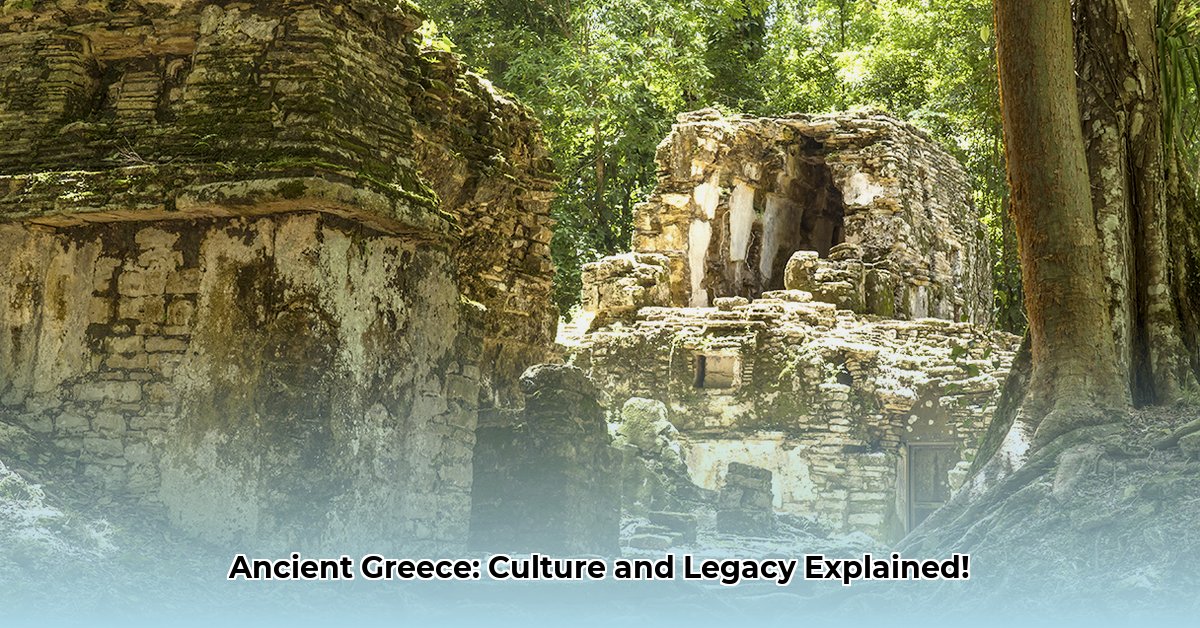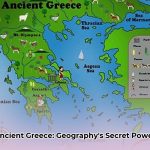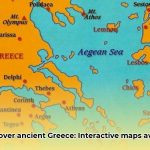The profound story of ancient Greek colonization transcends simple territorial expansion; it represents a pivotal era of human adaptation, economic ingenuity, and the enduring quest for new horizons. Primarily spanning the Archaic period, from approximately the 8th to the 6th centuries BCE, a vast network of Greek settlements proliferated across the Mediterranean and Black Sea regions. This extensive movement fundamentally reshaped the geopolitical, cultural, and economic landscape of the ancient world. But what intricate forces propelled this ambitious diaspora, and what indelible legacy did it ultimately leave on the tapestry of history? For context, consider the ancient Greek geography.
The Impetus Behind Hellenic Expansion
Have you ever considered the multifaceted pressures that might compel an entire community to embark on perilous voyages and seek a new life far from home? For many ancient Greeks, such dilemmas were a stark reality.
Motivations for Migration
Life within the confines of ancient Greek city-states (poleis) was often challenging. Overpopulation became a critical concern, placing immense strain on finite arable land and other vital resources. This scarcity frequently fueled internal social and political tensions, compelling leaders to seek external solutions. As Thucydides noted, limited fertile lands in the Peloponnese often led to violent raids and instability, encouraging outward migration.
Beyond demographic pressure, the allure of economic prosperity served as a potent motivator. The prospect of gaining access to valuable raw materials, such as timber and metals, and establishing lucrative new trade networks, offered compelling reasons for embarking on these ventures. Many colonies were established along key maritime routes, becoming bustling emporia (trading hubs) that facilitated commerce and enriched both the colonies and their mother cities. Controlling trade routes and resources was a significant strategic advantage.
Furthermore, political instability and civil unrest within the metropolis (mother city) could prompt groups to seek new beginnings. Stories like the founding of Taras by the Parthenians, exiles from Sparta, highlight how internal conflicts could be alleviated by sending dissenting or marginalized groups to establish new settlements. In some instances, the desire to expand political influence and forge new alliances, as seen in Athens’ attempts to colonize Sicily, also played a crucial role.
The Organized Enterprise of Founding a Colony
Establishing a new colony was far from a spontaneous endeavor; it was a meticulously planned undertaking embedded in religious and social rituals. Often, the process began with a crucial consultation of the Oracle at Delphi, believed to offer divine sanction and guidance for the venture’s success. Once sacred approval was granted, a designated leader, known as an oikistes (the founder or leader of the expedition), was selected to guide the colonists to their destined new home. This oikistes was responsible for overseeing the selection of a hospitable and strategically advantageous site, parceling out land, and establishing the new settlement’s governance, which typically mirrored that of the mother city. The colonists even carried sacred fire from their metropolis‘s public hearth to light a new one in their new home, symbolizing a continuous cultural link.
Diverse Forms of Greek Settlements
Not all Greek settlements were created equal, and understanding their distinct functions offers a clearer picture of Greek colonial motivations and their evolving relationship with the Greek homeland.
Apoikiai: Independent City-States
These were the quintessential colonies—fully independent city-states designed for enduring settlement and self-governance. An apoikia (meaning “home away from home”) functioned as a miniature version of its founding metropolis, complete with its own political systems, laws, and customs. While politically independent, these apoikiai usually maintained strong cultural ties with their mother cities through shared heritage and religious practices. A prime example is Syracuse, founded by Corinth in Sicily, which grew into a formidable polis in its own right, often rivaling the power of mainland Greek cities and even other empires like Carthage.
Emporia: Bustling Trade Hubs
In contrast, an emporion (from the Greek word for “trading station”) was primarily a commercial outpost, a strategic hub facilitating exchange between Greek merchants and local indigenous populations. These settlements were less about permanent large-scale population transfer and more about fostering profitable economic interactions. Their political structures tended to be less developed, focusing on the logistics of commerce rather than comprehensive self-governance. Many emporia were established in resource-rich areas or along vital maritime trade routes, transforming over time into significant commercial centers.
Cleruchies: Athenian Strategic Outposts
Cleruchies (κληρουχία) represented a distinct Athenian innovation, primarily emerging during the 5th and 4th centuries BCE. Unlike other Greek colonies, cleruchies were politically dependent on Athens. Athenian citizens, known as cleruchs, were granted land allotments in these territories, often in exchange for military service, and retained their Athenian citizenship while paying taxes to Athens. These settlements served multiple purposes: alleviating poverty in Athens by distributing land to the poor, safeguarding vital grain fleets, and projecting Athenian military and political power in key strategic locations, particularly along the routes to the Black Sea.
Cultural Exchanges: A Hellenic Melting Pot
The establishment of ancient Greek colonies was a powerful engine for the dissemination of Greek culture, language, and religious practices across vast territories. However, this was rarely a one-way street; it was a dynamic process of “culture contact” that profoundly shaped both the colonizers and the colonized.
Spreading Hellenic Civilization
Indeed, Greek traditions, architectural styles (such as Doric temples), philosophical ideas, and the versatile Greek alphabet spread far and wide, laying the groundwork for what would become Hellenic civilization. Major colonies like Massalia (modern-day Marseille), founded by Phocaeans, became vibrant centers for Greek cultural diffusion in the western Mediterranean, influencing the local Gaulish populations. The adoption of the Chalcidean/Cumaean variety of the Greek alphabet by the Etruscans in Italy, which later evolved into the Latin alphabet, stands as a testament to this enduring cultural impact.
Adapting to New Worlds and Intercultural Blending
Crucially, this cultural spread was not a simple imposition. Colonists frequently encountered and interacted with diverse indigenous populations, leading to dynamic processes of cultural exchange. The Greeks often adopted and adapted local customs, technologies, and artistic styles, resulting in rich, hybridized societies. This interaction could involve alliances, intermarriage, and diplomatic negotiations, as well as occasional conflicts. The result was often a unique Hellenic civilization that blended Greek traditions with local practices, especially evident in regions like Magna Graecia. This period truly highlights how ancient cultures mingled and evolved, leaving a lasting impact that transcended simple conquest. Women, while often overlooked in historical narratives, played an indispensable role in the social reproduction and cultural continuity of these emergent colonial societies, particularly through family formation and the crucial task of raising children within new cultural contexts, sometimes across mixed Greek and indigenous heritage.
Major Waves and Notable Ancient Greek Colonies by Region
The Greek colonial expansion unfolded in distinct phases, with specific city-states leading the way in different regions.
I. Southern Italy and Sicily: Magna Graecia
The coastal areas of Southern Italy and Sicily, known to the Romans as Magna Graecia (“Greater Greece”), became the most extensively settled and culturally “Greek” of all colonized territories.
* Euboean Pioneers (8th century BCE): The Euboeans, particularly from Chalcis and Eretria, were among the earliest colonizers. They founded Pithecusae (modern Ischia) in Southern Italy, believed to be the first Greek settlement in Italy, around 770-760 BCE. This was soon followed by Cumae (circa 740 BCE) on the mainland and Zancle (Messina) and Rhegium (Reggio Calabria) in the Strait of Messina.
* Corinthian Influence: Corinth established Syracuse in Sicily around 733 BCE. This city rapidly flourished, becoming the largest and most powerful polis in the entire Greek world, often engaging in fierce rivalries with Carthage.
* Achaean Settlements: The Achaeans founded significant colonies along the Ionian coast, including Sybaris (circa 720 BCE) and Croton (circa 710 BCE), both renowned for their wealth and later for their conflicts. Sybaris, especially, became synonymous with luxury.
* Spartan and Other Contributions: Refugees from Sparta founded Taras (Taranto) in 706 BCE, which evolved into a major economic and military power. Other key Sicilian colonies included Naxos (734 BCE, Chalcis), Gela (688 BCE, Rhodes and Crete), and Akragas (circa 580 BCE, Gela), famous for its impressive Doric temples.
II. The Ionian Sea and Illyria
Corinth played a particularly instrumental role in colonizing the Ionian Sea and Illyria, securing vital sea lanes to the west.
* Western Greece: Important Corinthian colonies included Leucada, Ambracia, and Corcyra (Corfu), founded in 733 BCE, which became a significant maritime power in its own right.
* Illyria (Modern Albania): Corinth also established major cities like Apollonia and Epidamnus (Dürres) in Illyria, which became prosperous trading centers. Further north in the Adriatic, colonies like Pharos (on Hvar) and Issa (on Vis) were founded by Parian and Syracusan Greeks, respectively, extending Greek influence into modern-day Croatia.
III. The Black Sea and Propontis (Euxine Sea)
Initially perceived as “inhospitable,” the Black Sea (Euxine Sea) region became a major focus of Greek colonization, particularly led by Megarian and Ionian city-states like Miletus.
* Propontis: Megarians founded strategically vital cities such as Byzantium (Constantinople/Istanbul) in 668 BCE, controlling the Bosporus Strait, and Chalcedon (circa 685 BCE). Miletus established Cyzicus (675 BCE) and Lampsacus.
* Western Black Sea: Milesians founded Histria and Apollonia (modern Sozopol) in present-day Romania, while Megarians founded Selymbria and Mesembria (Nessebar).
* Southern Black Sea: Sinope, founded by Miletus around 631 BCE, became one of the most important colonies in the region, establishing its own network of daughter colonies.
* Northern Black Sea: Miletus also founded Pontic Olbia (circa 550 BCE) and Panticapaeum (modern Kerch) on the Crimean Peninsula (Tauric Chersonese). Phanagoria, a colony of Teos, was also significant. These colonies secured access to rich fishing grounds and fertile lands for grain production.
IV. Northern Aegean and Thrace
Numerous colonies flourished in Northern Greece, especially in Chalcidice and Thrace.
* Chalcidice: Settled primarily by Euboeans from Chalcis, major sites included Olynthos, Torone, and Mende. Potidaea was a significant Corinthian colony here.
* Thrace: Ionians from Asia Minor founded crucial trading posts such as Maroneia and Abdera. Milesians also settled Abydos and Cardia on the Hellespont.
V. Western Mediterranean and North Africa
Greek colonization extended as far as the Iberian Peninsula and North Africa, albeit with fierce competition from other maritime powers like the Phoenicians.
* Southern France: The Phocaeans made a great contribution, founding Massalia (modern Marseille) around 600 BCE, which became a gateway for Greek trade and culture into Gaul. They also established Olbia and Antipolis (Antibes).
* Iberian Peninsula (Spain): Phocaeans also founded Empuries (Ampurias) and Rhode (Rosas) in Spain, establishing an extensive trade network, though these colonies were often culturally less ‘Greek’ due to intense interaction with local populations and Phoenician rivals.
* North Africa: Colonists from Thera founded Cyrene in Libya around 630 BCE, which evolved into a powerful and prosperous agricultural hub. Euesperides (Benghazi) was another important colony. In Egypt, Naukratis, founded by Milesians in the Nile Delta (615 BCE), was the sole Greek trading concession, thriving as a prosperous multicultural market.
The Enduring Legacy of Greek Colonization
The profound impact of ancient Greek colonization is undeniable. It dramatically expanded the geographical and cultural footprint of Greek civilization, fostering unprecedented levels of trade and cultural exchange across diverse regions. This vast network of settlements laid crucial groundwork for subsequent historical developments, including the Hellenistic period, a golden age of cultural synthesis that saw Greek language and ideas spread further through the conquests of Alexander the Great.
The colonies served as conduits for the exchange of goods, ideas, and cultural practices between the Greeks and the indigenous populations, contributing to a rich tapestry of hybridized societies. The tangible remnants of these colonies—from majestic ancient ruins and their distinctive architecture to deeply embedded linguistic and cultural traditions—continue to captivate and inform us today, offering vital insights into the dynamics of early global interaction. The political models, philosophical inquiries, and artistic expressions developed in this expansive Hellenic world deeply influenced the Roman Empire and, subsequently, the trajectory of Western civilization.
Unresolved Questions and Historical Debates
While extensive archaeological and textual evidence illuminates much about ancient Greek colonies, certain aspects remain subjects of ongoing academic inquiry and robust debate. Historians continue to scrutinize the precise foundation dates of some colonies, with new discoveries frequently recalibrating previous assumptions. Furthermore, the extent to which Greek colonists integrated peacefully with, or perhaps forcibly displaced, indigenous populations is a complex and often hotly debated topic. The exact demographics of colonial expeditions, including the integral role of women in the initial waves of emigration and the nature of intermarriage, continue to be areas of active research that challenge traditional, male-centric historical narratives. These ongoing discussions underscore the intricate nature of the subject and remind us that our understanding of ancient history is constantly evolving.
In conclusion, the story of ancient Greek colonization is a multifaceted one, driven by a complex interplay of demographic pressures, economic ambitions, and cultural diffusion. It was a dynamic process that not only shaped new societies across vast distances but also profoundly influenced the future trajectory of the Mediterranean world, leaving a legacy of intermingled cultures and enduring intellectual inquiry that continues to resonate today.
- Unearth ancient rome achievements: Engineering feats & legal legacies, examined - August 13, 2025
- Unlock ancient rome army ranks: Power, impact & legion command - August 13, 2025
- Conquer Your Exam: Ancient Greece Quiz Ace It Now! - August 13, 2025
















